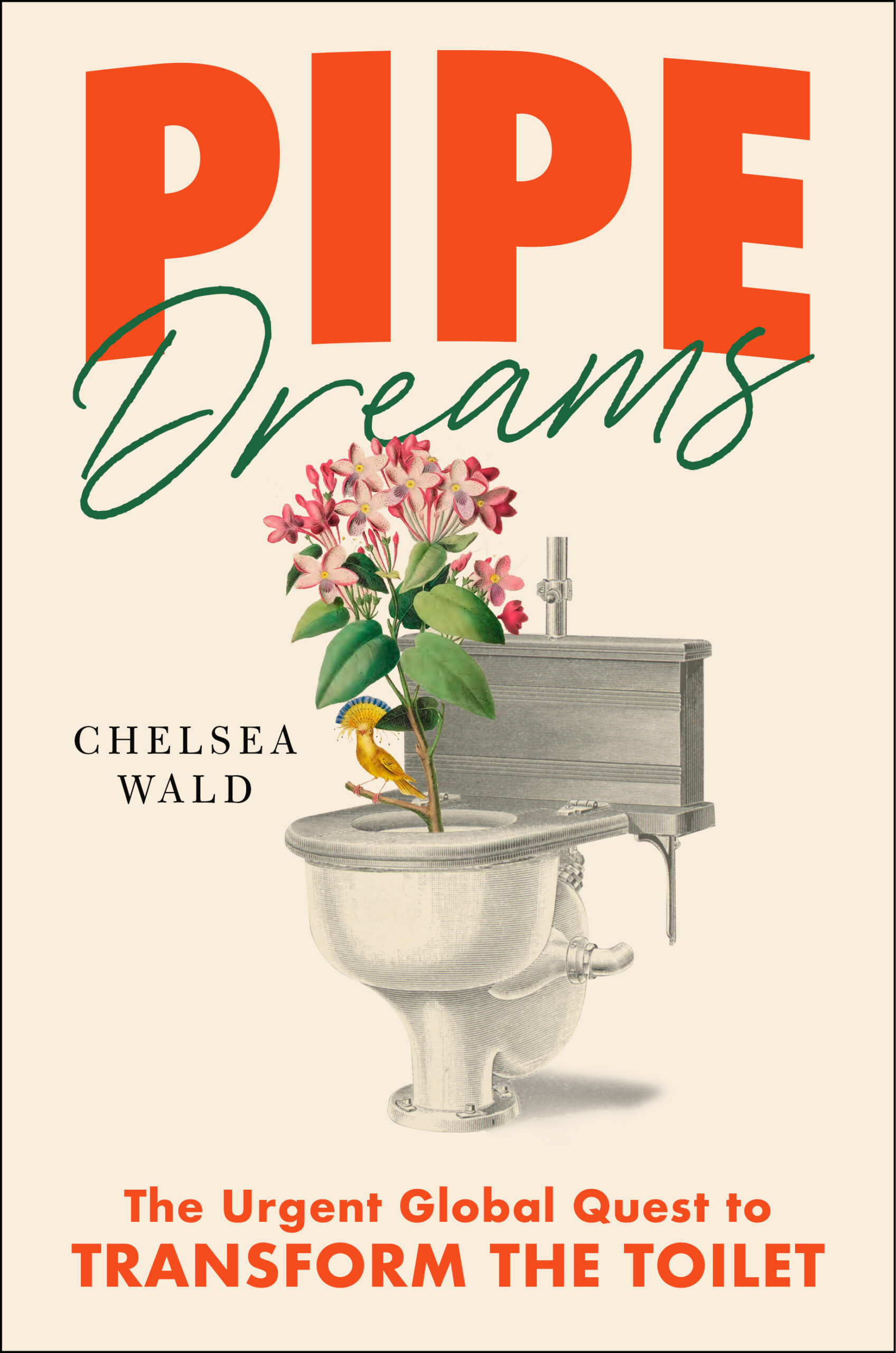
How can you contribute to the toilet revolution?

Note from DefeatDD: Our current sanitation systems are insufficient for the challenges of the future. The supposed “gold standard” of sewered sanitation protects against disease but wastes water and energy and requires expensive maintenance. Too few people have access to such systems, and the need for safe, sustainable, resource-conserving sanitation is increasing due to climate change.
In the book Pipe Dreams, environmental journalist Chelsea Wald describes the history, current state, and future possibilities around sanitation systems and their untapped potential to improve health, environment, economies, and equality. This excerpt from the final chapter lists 11 ways that anyone—no matter their background or location—can get involved in the fight for improved sanitation.
When it comes to our toilet systems, we’re on the precipice of a paradigm shift, but we could teeter here for a long time to come if we don’t, together, actively decide to make some changes, despite the risks they represent. This isn’t a book with a single, specific prescription for action, but if you feel moved to do something that will launch you off the page and into the toilet revolution, here is my suggestion. Pick just one or two of the following actions—whatever intrigues you the most—and see where the questions lead you:
- Learn. Where does your wastewater go after you flush? If to a septic tank, what kind and how does it work? If to a sewer, where is the treatment plant and how does it work? Where do the liquids and solids end up? Is energy or fertilizer recovered? Go on a tour, and take your friends and family.
- Upgrade. Can you switch to a toilet with a lower flow? Can you flush with water you’ve saved from elsewhere, like the shower? Can you buy more sustainable toilet paper or a bidet? Have you enforced a three p’s rule for your home—only pee, poop, and (toilet) paper go down?
- Investigate. Does your local sewer system leak or overflow? Does your community have a problem with septic tanks that pollute local waters or soils? Who in your community bears the brunt of this pollution? Can you join a local citizen scientist initiative sampling the local water quality?
- Advocate. Are the shared toilets in your community’s public places, workplaces, and schools sufficient in number and quality? Are they inclusive? Are period products available and, even better, free? Does anybody in your community lack safe toilet systems at home?
- Experiment. Are there any groups in your area, like Vermont’s Rich Earth Institute or university laboratories, testing new systems, collecting urine or feces, or selling products? If you want to try fertilizing your garden with your own pee and poop, make sure to know the local regulations and follow guidelines from reliable sources, and then start with a urine collector or compost toilet on your property.
- Support. Lots of organizations, some mentioned in these pages but many that I haven’t named specifically, are doing good work, nationally and internationally. If you have a particular interest in a place or group of people, can you make a contribution, financial or otherwise, to help them access good sanitation?
- Talk. Encourage more—and more positive—conversation about the issues around toilets. Can you bring the topic up at a party? Can you participate in or even organize a World Toilet Day (November 19), Menstrual Hygiene Day (May 28), or World Water Day (March 22) event in your area?
- Defend. Take the shame out of toilet issues. Ask yourself: How would you speak up if you heard someone being shamed for peeing, pooping, or menstruating?
- Appreciate. Wastewater workers usually only hear from the public when something goes wrong, but like firefighters and EMTs, they help keep you alive. How can you thank them, and back them up when they demand safe conditions and good pay?
- Train. Would you like to be part of bringing about the future of toilet systems? A “silver tsunami” is about to hit the United States, with many wastewater professionals in particular nearing retirement age, and plumbers are always in demand.
- Create. Contribute your strengths. Even if you don’t want to work in wastewater, think about what you can do. Are you an artist? A computer programmer? A writer? A teacher? A real-estate developer? A social-media influencer? A crafter? A restaurant owner? We can all bring our skills to bear to make sure that our toilet systems work well and for everyone.
Perhaps you don’t see yourself as a do-gooder (or a loo-gooder). That doesn’t matter. The fact is that the toilet revolution doesn’t require altruistic motives. Selfish ones will do. On our shared planet, if just one person doesn’t have a decent toilet, it puts everyone at risk. Disease, pollution, suffering—the fallout of these is not easily contained to the places where they originated. If sanitation doesn’t work for all of us, it works for none of us. That’s the pain of it, and the beauty. We are all connected to one another and to every organism on the planet through our toilets. We all have to get to Loo-topia together.
 Chelsea Wald is an award-winning science journalist and author of Pipe Dreams.
Chelsea Wald is an award-winning science journalist and author of Pipe Dreams.
Excerpted from Pipe Dreams by Chelsea Wald. Copyright © 2021 by Chelsea Wald. Reprinted with permission of Avid Reader Press / Simon & Schuster.


